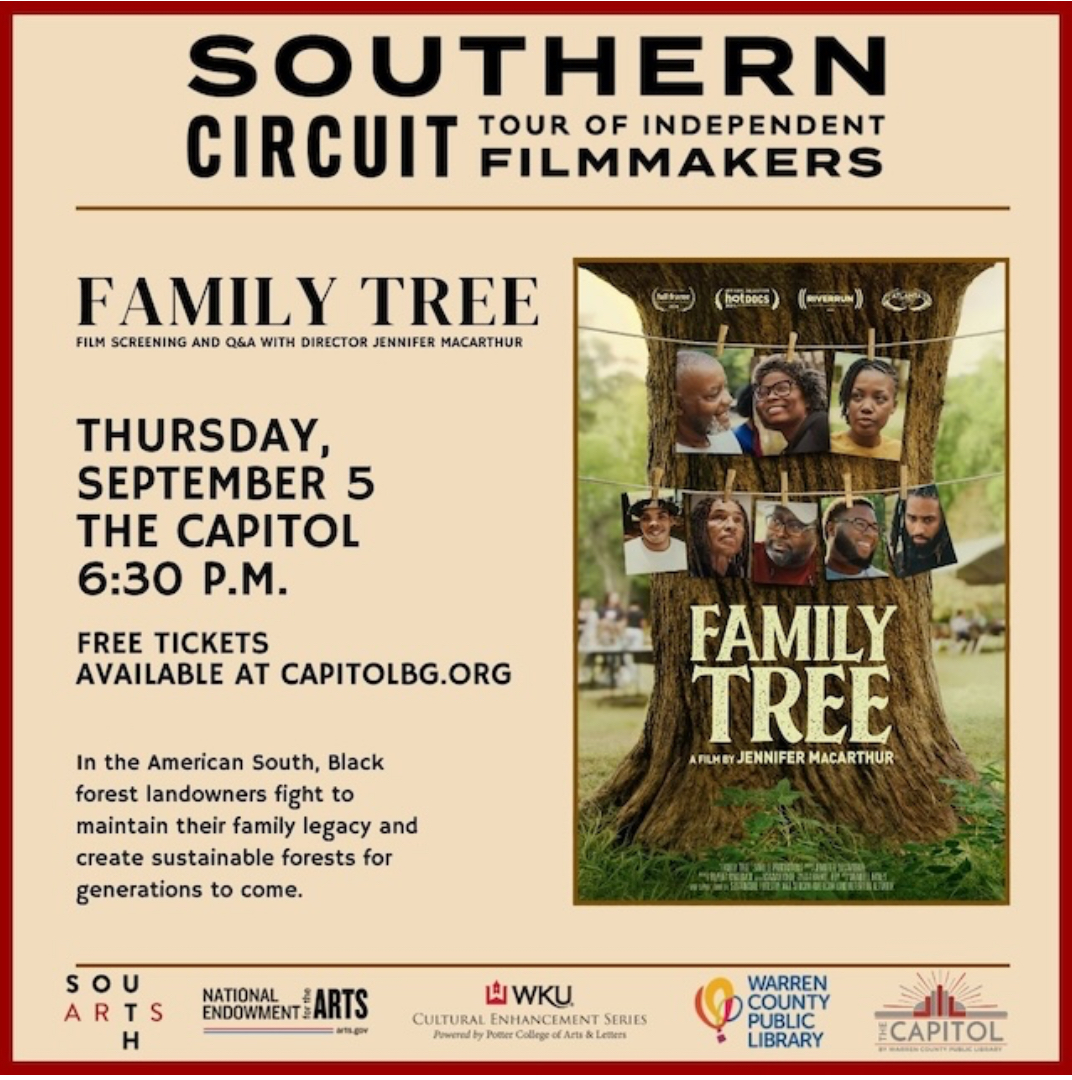

Family Tree Documentary Highlights Unique Stories of Africa American Farming
On a vibrant Thursday evening, September 9, the Capitol Arts Center transformed into a cultural hub as it showcased the documentary “Family Tree,” a film that is part of the Southern Circuit Tour of Independent Filmmakers. This event was made possible through the efforts of Western Kentucky University’s (WKU) PCAL Cultural Enhancement Series. Neon lights flickered in harmony with the sweet aroma of freshly popped popcorn, setting the scene for an engaging exploration of family legacies and sustainability.
“Family Tree” dives deep into the lives of two African American families residing on their ancestral lands in North Carolina, weaving a narrative that emphasizes sustainable forestry practices. The documentary centers on the Jefferies and the Williams families, who are not just caretakers of their land but also custodians of their history. They navigate the complexities of maintaining their profit-generating forests while also addressing the intricate dynamics of their familial relationships.
Jennifer MacArthur, the visionary director behind “Family Tree,” aptly describes the film as “a family dramedy.” She aimed to bring the concept of sustainability to a wider audience in a relatable manner, stating, “That was really important to me. Showing a sense of hope for the future and giving people ways into the conversation about climate change.”
Beyond the pressing issues of climate change, the film probes deeper into the notion of personal heritage. It showcases the pride that both families take in their roots and their commitment to preserving those roots for future generations. As the audience gets a peek into their lives, it becomes clear that familial bonds can be both strong and fraught with tension. The film artfully navigates the delicate balance of love and differing opinions within families.
MacArthur’s documentary fills an essential niche in media, as the stories of Black rural communities are often overlooked. “I think modern media falls short just even telling the story,” she remarked, “Black rural people don’t even exist in the public consciousness and the public discourse and the media.” By showcasing the everyday lives of these families, “Family Tree” strives to change that narrative, pulling their stories into the limelight.
As the audience sat glued to their seats, moments of laughter flowed seamlessly into instances of somber reflection. This emotional ebb and flow connected viewers to the families on screen in a visceral way. Reed Williams, a theater major who attended the screening shared, “I really, really liked the film. My family is full of Black farmers, so it was kinda more close to home a bit.” His reaction echoed the sentiments of many audience members who found their own experiences mirrored in the families portrayed.
The film is a reminder of the unique struggles and resilience of African American farmers, whose stories often go untold. “Family Tree” highlights their arduous efforts not only to maintain their land but also to preserve a legacy that often gets overlooked in broader discussions about agriculture and sustainability.
As we continue to grapple with climate change, stories like those captured in “Family Tree” become all the more critical. They encourage a dialogue around sustainable practices and familial relationships in a contemporary context—demonstrating that the land we tread is as much a part of our legacy as the families we cherish.
This documentary is more than just a portrayal of farming; it signifies a journey towards understanding heritage and the environment. By weaving humor and heart into the narrative, MacArthur invites us to consider not just the challenges but also the triumphs that come from working the land as a family.
If you missed the screening at the Capitol Arts Center, consider keeping an eye on future showings or events that embrace independent filmmaking. These films not only enrich our understanding of diverse experiences but also underline the importance of community storytelling in an increasingly fragmented media landscape.
For anyone interested in understanding the intersections of culture, environment, and personal history, “Family Tree” is a rich tapestry of life that deserves to be seen, discussed, and celebrated.
Stay tuned for more updates on independent films and cultural events in the area, and remember, every story has the power to connect us to each other and to our histories.


